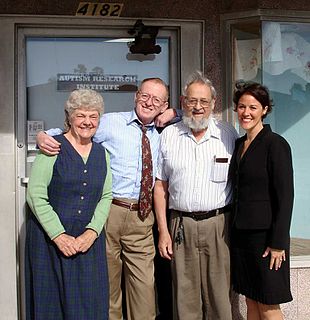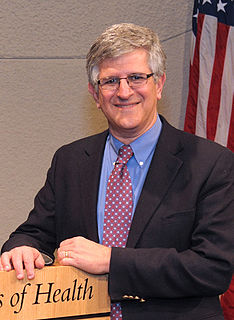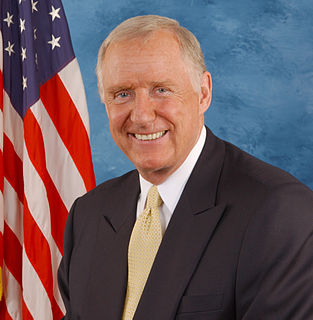A Quote by Jenny McCarthy
If you give us a safe vaccine, we'll use it. It shouldn't be polio versus autism.
Related Quotes
The main problem, certainly, for the people who will not get vaccinated with Thimerosal, which was put into polio vaccine. And the belief was that it may cause autism. And there's been an awful lot done in terms of studies in Western Europe, Canada, the United States, and no correlation was found between Thimerosal and autism from those children who took vaccines. Indeed, when Thimerosal was taken out of many of these vaccines, the autism rate in the United States still rose.
They claim that autism naturally occurs at about 18 months, when the MMR is routinely given, so the association is merely coincidental and not causal. But the onset of autism at 18 months is a recent development. Autism starting at 18 months rose very sharply in the mid-1980s, when the MMR vaccine came into wide use. A coincidence? Hardly!
Today, however, anti-vaccine activists go out of their way to claim that they are not anti-vaccine; they’re pro-vaccine. They just want vaccines to be safer. This is a much softer, less radical, more tolerable message, allowing them greater access to the media. However, because anti-vaccine activists today define safe as free from side effects such as autism, learning disabilities, attention deficit disorder, multiple sclerosis, diabetes, strokes, heart attacks, and blood clots—conditions that aren’t caused by vaccines—safer vaccines, using their definition, can never be made.
So, obviously, autism - which is the key in this - is a very big problem. We need more studies about it. We certainly have to try to figure out what causes it and why and do something about it. But to tab it to vaccines, I think, is a real mistake. Not only is there no evidence, but what it leads to is larger numbers of unvaccinated children. And that's not only a problem for polio. It's a problem for a wide range of vaccine-preventable diseases.
I think one of the problems with the definition of autism is we keep expanding it. It started as "early infantile autism", and then it became "autism", and now it's "autism spectrum disorder". I'm not opposed to that from the standpoint of trying to broaden our vistas, and so forth. But from a research point of view, the term autism is lost in specificity.





































